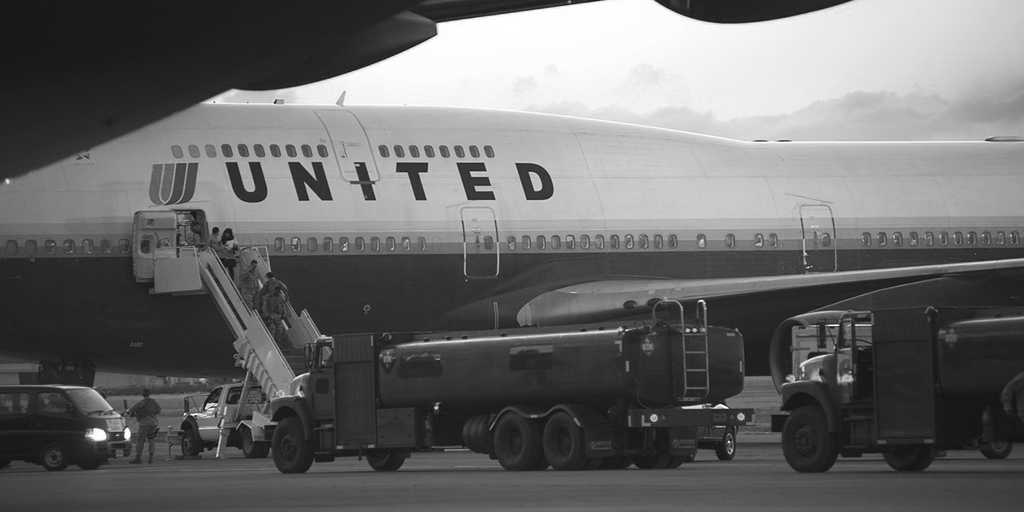The recent shake-up at United Airlines in the wake of the continuing travails involving the State of New Jersey and the Port Authority of New York and New Jersey (PANYNJ) provides some sharp lessons and warnings for in-house counsel, compliance practitioners, and board audit committees.
The head of United Airlines recently resigned in light of a federal investigation by the New Jersey U.S. Attorney’s office. The resignation follows on the infamous “Bridgegate” saga with the Christie Administration. The Chairman of the PANYNJ, a Christie confidant, allegedly is implicated in both Bridgegate and now this latest issue with United. The papers report that United provided the PANYNJ’s Chairman with, essentially, his own commercial flight to South Carolina where his vacation home is located. No such flight route existed. Coincidentally, United was seeking a rent reduction under its lease with PANYNJ at Newark Airport.
Regarding the PANYNJ: While this is a quasi-governmental, not-for-profit entity, its governance structure poses challenges for any jointly-owned concern; particularly an entity jointly owned by competitors. New York and New Jersey fiercely compete for projects and capital dollars. As such, the PANYNJ’s executive positions are split between its Executive Director (chosen by New York) and its Deputy Executive Director (chosen by New Jersey). The Chairman of the Board is chosen by NJ.
The problem is that these officials owe their positions (pretty cushy positions at that) to the State and Governor that appointed them, as opposed to the entity they are supposed to serve. That entity’s mission is to benefit the commerce of the entire New York Metropolitan region, not that of a single state. That is its raison d’etre in the first place.
From an in-house counsel and compliance officer vantage, the types of alleged lapses posed by the United/PANYNJ situation are extremely difficult to detect and prevent.
All it took, apparently, were a few officials who lost track of their obligations. The states of NY and NJ have a number of reform suggestions to fix this. But this can happen to any jointly owned entity. In the private sector, such wrong turns can raise antitrust, securities, and fiduciary issues. It is critically important that counsel and compliance professionals train board members and officers of their obligations and create governance structures and monitoring mechanisms that reinforce these duties and that allow the early detection of any ethical and legal violations.
From a management perspective, the new head of United is the President of CSX Transportation, a large eastern freight railroad. Oscar Munoz’s background is in finance, and his training is in the telecommunications and soft drink industries. CSX brought Munoz in as an outsider in 2003 during the chaos arising out of its acquisition of the Philadelphia-based railroad, Conrail in 1999, to be CFO and then heir-apparent CEO. Now United has done the same thing, bringing in Munoz (who has been on United’s Board for some time) to run the show. The rail industry, in particular, and the airlines to a lesser extent, are heavily regulated by the federal government in the areas of safety and economic activities.
It will be interesting to see how an outsider does, trying to turn around a culture that seems to have allowed serious ethical and fiduciary problems to occur, coming from a different set of industries. Both the rail and airline industries are steeped in particularized corporate cultures and there has frequently been resistance to outsider efforts to change those cultures. Mr. Munoz will have his hands full. [i]
Finally, from an in-house counsel and compliance officer vantage, the types of alleged lapses posed by the United/PANYNJ situation are extremely difficult to detect and prevent. They are largely extra-corporate in the sense that they are not part of the normal day-to-day business that those charged with preventing such conduct in a company or agency might detect through financial disclosures, board approvals for particular transactions, and the like.
If, as counsel, you were to come across such conduct, you would immediately need to elevate the matter to the audit committee of the board or its parallel at a government agency (e.g., an inspector general). Otherwise, unless you have the type of personal relationship with a CEO where they would have confided in you beforehand and you could put a stop to it, the best advice I can provide is to constantly remind your clients that not only should you do the right thing for legal and ethical reasons, but also because failing to do so will put them in direct, personal jeopardy. Frequently, the only thing that might get a successful and powerful senior executive to think twice before going down the path of peril (since such a person seemingly has lost whatever internal compass they should have had already) is the fear of detection and personal risk.
[i] The author is the Chief Legal Officer of Conrail, an indirect subsidiary of CSX Corporation. The views expressed here are the author’s own, and not those of Conrail or its corporate affiliates.

2 thoughts on “Flying Off the Rails”